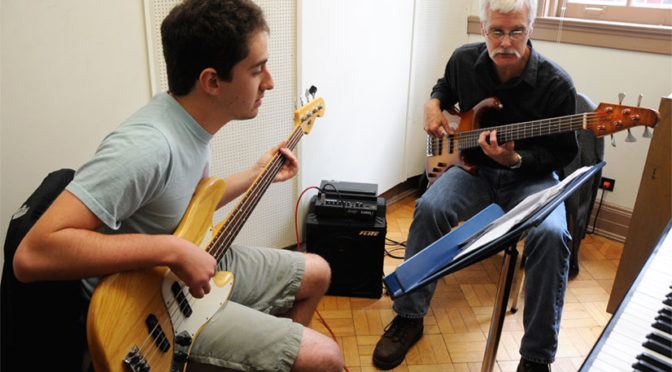Musicians with years of experience, and even those new to professional music, often find it rewarding to spread their experience and knowledge. Offering private lessons can help make connections in the community and foster personal musical development, and by introducing new people to the joys of performance, you can make a difference in your students’ lives. So as summer comes to an end and school starts up again, think about ramping up efforts in education and really making an impact through private instruction.
Back to Basics
You must first decide what age group to teach. The age of your students will not only determine what and how you will be teaching, but it will also determine your weekly teaching hours. High school and grade school aged students, along with working professionals, require afternoon, evening, or weekend hours and college students or retirees may have more flexible schedules. Try to think about your daily routines and how you will balance teaching with your rehearsal and performance schedule. You must also set aside time for setting up a curriculum and a system for evaluating student progress.
It’s important to research which books and teaching materials will be effective for your students. Resources are available through national organizations including the Music Teachers National Association (MTNA) at www.mtna.org and National Association for Music Education (MENC) at www.nafme http://www.nafme.org/.org, as well as their local chapters. For a mix of new-and-innovative and tried-and-true, the best teachers combine methods from their own musical beginnings with more recent innovative techniques.
Prospective students or their parents will ask you about education, previous teaching experience, references, and the types of music that you teach. Tailor the information you have in your working bio to answer questions students may have about your background. It’s important to highlight diversity and variety in your skills, and experience in many different musical settings–band, orchestra, solo recitals, and work in various genres.
Keep enough free time in your schedule to allow flexibility when it comes to setting up lessons, especially when balancing private teaching with commitments to another job. Students and their parents keep busy school-year schedules as well.
Another important consideration is how much to charge for lessons. Factors in determining fees include income levels in your area, length and level of the lessons, and whether you’re teaching children, adults, or both.
Online and on Paper
There are a lot of online resources you can use to set up a successful teaching studio. The AFM’s GoProLessons.com is a directory of professional musicians offering lessons. Students looking for a teacher can search for a professional teaching musician in their area. As an AFM member you can post a profile with your bio and photo. A personal website or a profile on a social networking site like MySpace can include recording samples, along with a bio, photos, and other information.
The websites for MTNA and MENC offer listings to members according to instrument and location. MTNA also offers opportunities for professional development, including a national certification process. Once established, you should consider taking this step; it carries with it the possibility of awards and national recognition for your teaching work.
Designing a flyer to be placed at local music stores–even if it’s just a sheet with little tear-off strips at the bottom with your name, phone number, and e-mail address–is also a good starting point. Some music stores also house teaching studios; inquire if there’s an opening or a need for an additional teacher for your instrument.
Onward and Upward
To expand your teaching from a handful of students to your own studio, involvement and interaction in your community are crucial, and networking will be a valuable asset. Connections with classroom music teachers will help in seeking out budding talent. Friends and colleagues who teach in local schools can point out concerts and recitals to attend, and may recommend you to students and their parents, including those who wish to continue their study when school is not in session.
Always keep promotional materials updated and on hand; every trip to a school, rehearsal or performance site is another chance for further exposure. As music in public schools is gradually and tragically being phased out, private music instructors can fill the void in arts education.


